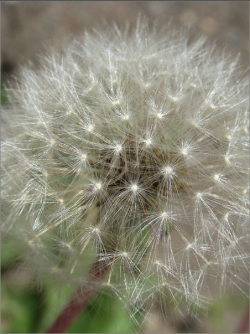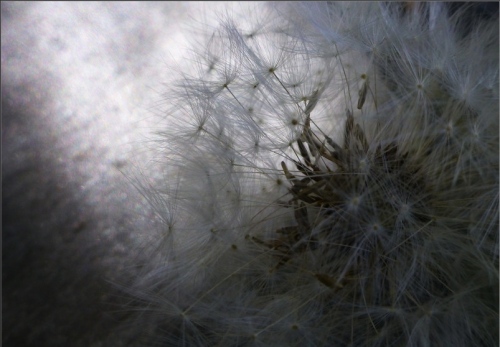Memoir by Fran Cronin
A Mother Struggles with Letting Go
When I was pregnant with my first child, strangers shouted from across the street, “It’s a boy!”

My husband and I had no such certainty. Anecdotal wisdom may have led total strangers to assume the watermelon shape of my belly was proof of the maleness within, but the case made by family genetics was stronger: My husband was one of two boys, and his brother had fathered two sons. My in-laws maintained that a girl had not been born into the family for 60 years.
So when the doctor announced, “It’s a girl!,” my husband shot back, “It’s a girl?” Then, to me, he repeated with certainty, “It’s a girl.” Belying expectations, we had brought our daughter Dora into the world.
Dora is now 18 and has just graduated from high school. Eighteen years may seem to be a long time when you think about all that can transpire. In my case, I had another child (a son, now 15); I moved three times; my hair turned gray; my mother died. My father sold the house my three brothers and I grew up in and now lives in an assisted living facility nearby. I lost my husband and have been a widow for almost 15 years. I survived cancer.
But in my brain’s faltering calculus of time, my husband is holding our newborn daughter in his arms—her small, furrowed brow a replica of his. Her seven-pound, eleven-ounce body a rib-bulging torso with an oversized head. Then I am tucking her in close, clutching her like a football in the grip of a wide receiver gunning for a touchdown. Nothing can dislodge this precious cargo from my arms.
That rush of maternal certainty, of animalistic protection and devotion, has never left me. It’s a state of being I never questioned. Yet, in the fall, my daughter will be off to college, and I will, I know, be the one who waves the final goodbye.
The columnist Ann Landers is often quoted as saying, “Some people believe holding on and hanging in there are signs of great strength. However, there are times when it takes much more strength to know when to let go and then do it.”
Chinese fortune cookie wisdom, but also true.
Shaky in my belief that I was parent enough to raise my two children as both mother and father, I’ve hovered like a she cat on the lookout for the unwanted. I have been more prone to sucking in air to scent danger than to exhaling long, breathy praise, always aware that I might fail to launch my daughter. I was determined to see her successfully advance to college.
But now that college is imminent, I falter. Have I done well by her? Will she—like me at age 18, when I anointed myself the master of my future—maneuver herself into unnavigable shoals? Battered by my own inner storms during my time at college, it took years for me to emerge as a wiser, perhaps less fearless, woman. It was a high price to pay.

We reminiscence a lot, my daughter and I. She has been fatherless since the age of three and a half, and I rekindle her youngest memories—and mine—through the retelling of old stories, worn from use but as beloved as a still-clung-to baby blanket.
My late husband was a tall, rangy man, and Dora loved being high up on his shoulders. “Soldiers, Daddy, soldiers!” she’d demand with outstretched arms, and my husband would scoop her up and plant her securely on his shoulders, her legs dangling. Her belly laugh cascaded down in lusty waves, as if she were channeling a giddy adult and not the toddler she was.
The summer Dora was five, I heard her sobbing in her room. Expecting blood and bruising, I rushed in. But she was on her bed, hugging herself and rocking, no mayhem in sight. I put my arms around her, wiping heavy tears and sticky hair away from her face. “What’s the matter, sweet pea?” I asked. “I can’t remember,” she sobbed. “I can’t remember Daddy’s voice.” Was this my daughter’s first encounter with the heartbreak of letting go?
Despite all the times I’ve gone to sleep at night promising myself that the next day I’ll be a better mother, I have not perfected the art of parenting. I have unwittingly raised a daughter too much like me: restless, willful, and walled against the fragility of life. She is hunkered down in a world of her own making. When she exits the house each day, her true north is the worthiness of her friends and the love of her boyfriend. At home, she leaves her bravado at the door. She nests, swaddling herself in blankets and curling like a cat in her chair, her computer on her lap.
“Mama, can I have some tea?”
I bring her tea and cookies, marveling that I’ve managed to hold onto our home. Our money should have run out years ago. From the perch of our house, I am an owl, swiveling my neck in all directions, looking for signs of danger. With my vigilance, my daughter can safely play the part of being grown up. To me, she’s still a little girl in search of dress-up clothes.
In Justin Torres’s first novel We the Animals, Ma, mother of three boys, tells her youngest son on the day he turns seven why he shouldn’t get older like his brothers:
They changed…wriggled away when I tried to cuddle them, wouldn’t sit still on my lap. I had to let them go—had to harden my heart…
Rereading this passage, I’m frustrated by Ma. Actually, I’m borderline mad. She’s refusing to see the man inside her son, to embrace the expected arc of his life. And I wonder if Torres himself is ambivalent about the thinning connective tissue as a child grows up and away from home.
Is Torres saying that we parents only get two choices in our children’s steady march to adulthood: a prolonged dependence or an abrupt severing of ties? If so, neither appeals.
I know I’m a tug-of-war of emotions. My brain babbles with warnings of encroaching superfluity—I will become unnecessary save for the occasional request for a handout. Red neon flashes with a genuine fear for my daughter as she plunges headlong into unmapped terrain. It’s that old aphorism roaring down on my head: “A little knowledge is a dangerous thing.” My daughter is blithe to the pitfalls that will pave her future.
In September, when I turn to say goodbye, my daughter will lean in for a kiss.
“I love you,” I’ll say.
My kiss, an offering: a talisman, a moat, a torrent of love that will give her a current she can ride.
Publishing Information
- We the Animals by Justin Torres (Houghton Mifflin Harcourt, 2011).
Correction, June 12, 2013: The reference entry for the Ann Landers quote has been removed here, because we've been unable to verify the quote's original source. Landers is certainly quoted all over the Internet, however.
Art Information
- "Dandelion Seeds" © Cynthia Staples; used by permission.
- "Dandelion" © Cynthia Staples; used by permission.
Fran Cronin is a contributing editor and columnist at Talking Writing.
"When my hair started to gray at a somewhat respectable age, my dying mother—who finished all her sentences to me with “don’t ever tell anyone your age”—did not leave this earth until she said with her last breath, “And please dye your hair.”— Eileen Fisher’s Got My Back


